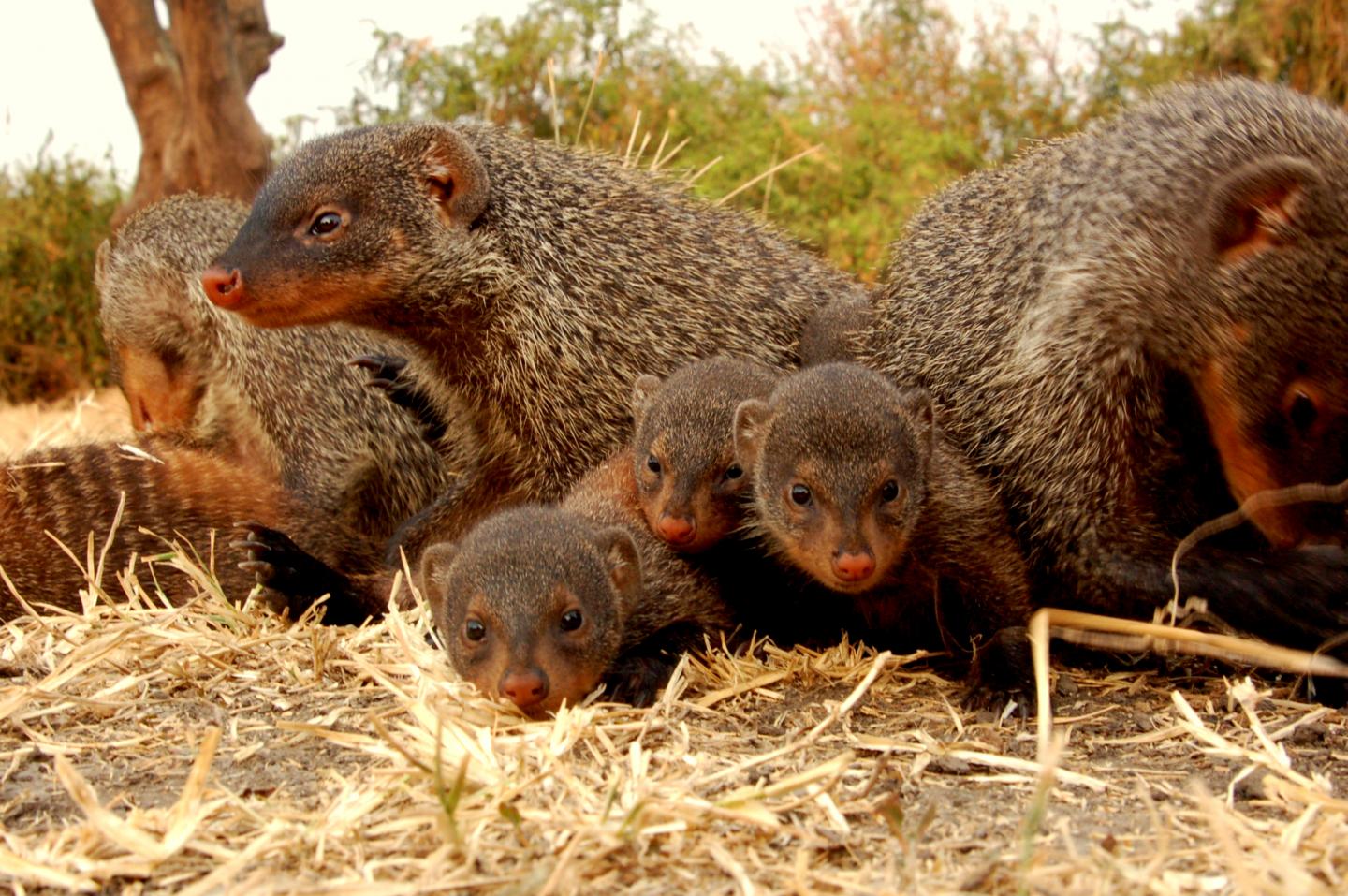Researchers studying wild banded mongooses in Uganda have discovered that these small mammals have either cooperative or selfish personalities which last for their entire lifetime.
The researchers investigated the selfish behavior of mongoose mate-guarding - where dominant males guard particular females - and the cooperative behavior of 'babysitting' and 'escorting' the young.
They found that cooperative mongooses that helped out with offspring care did so consistently over their whole lifetime but those that put in little effort never increased their workload.
Similar consistent behavior was found in mongooses that selfishly guarded mates for their entire life.

The researchers investigated the cooperative behavior of "babysitting " and "escorting " young. Credit: Harry Marshall
Dr Jennifer Sanderson, from the University of Exeter, who observed the banded mongooses to understand how they choose to invest in cooperative and non-cooperative behaviors, said: "We all know people who are always cooperative and others who are always selfish. Our study has found that the same is true in banded mongooses, some mongooses are more often observed cooperating while others are more often observed investing in selfish behaviors."
This type of 'cooperative personality' has been found in numerous other species including the banded mongoose's close relative the meerkat. However, this NERC-funded study is the first to test if this difference in tendency to cooperate is associated with differences in how much individuals invest in trying to mate.
Banded mongooses are highly social and breed cooperatively meaning that all individuals assist in offspring care even if they do not breed themselves. However, there is also a lot of competition within the group, especially when males compete for access to receptive females during estrus.
The research is part of a long-term study of banded mongooses on the Mweya Peninsular, Uganda led by Professor Michael Cant of the University of Exeter.
Professor Cant said: "Over the last 15 years we have observed how many days each male banded mongoose invests in two different cooperative pup care behaviors. We found that some banded mongooses have strong cooperative personalities and we wanted to find out why. In ant and honeybee societies there is a division of labor between the cooperative 'workers' and the selfish 'queens'. We thought that the same might be true in mongooses - that their cooperative personalities might be because they are specialized to roles as helpers and breeders".
In contrast to the queens and workers of ants and honeybees, Dr Sanderson discovered that the banded mongooses that rarely cooperate are not the same mongooses that spend the most time competing for access to mates. What causes banded mongooses to have such varying personalities remains unknown.
'The origins of consistent individual differences in cooperation in wild banded mongooses (Mungos mungo)' by Jennifer L. Sanderson, Iain Stott, Andrew J. Young, Emma Vitikainen, Sarah J. Hodge, and Michael A. Cant is published in the journal Animal Behaviour.




Comments